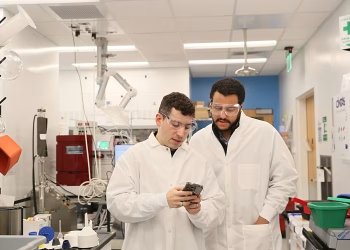The South African Medical Research Council (MRC) has entered a collaboration with scientists from eight other African countries.
This initiative, funded by the United States, aims to identify a promising immunization candidate against the virus responsible for AIDS, according to reports from Bloomberg.
This trial, which commenced last month, holds particular significance for South Africa, where approximately 13% of the 61 million population is infected with HIV, making it the nation with the highest HIV prevalence globally.
According to Glenda Gray, President of the South African MRC, researchers have already pinpointed molecules with the potential to elicit an immune response against HIV.
These molecules will be further developed into vaccine candidates.
The South African MRC is actively engaging with scientists to explore other immunogens based on the two most prevalent HIV strains found in Africa.
Furthermore, plans are in motion to conduct the inaugural HIV vaccine discovery study within the next year, as per Gray’s announcement.
In the pursuit of delivering the selected molecules most effectively, a broad spectrum of delivery options is under consideration.
This includes exploring mRNA technology, previously employed in some COVID-19 vaccines, as well as protein-based and nano-particle delivery mechanisms.
The research team is also evaluating alternative platforms with novel ingredients that could potentially enhance the immune response among vaccine recipients.
The quest for an HIV vaccine has been a longstanding challenge for the global scientific community. Although preventive treatments exist, they necessitate regular administration.
In cases of infection, lifelong use of antiretroviral drugs is essential to prevent the virus from progressing to fatal stages. Sadly, HIV claimed the lives of 630,000 people worldwide last year.
Issues with funding
The timing of the $45 million funding injection is pivotal, as the fate of the US President’s Emergency Plan for AIDS Relief (PEPFAR) program remains uncertain during political debates.
PEPFAR, originally launched in 2003 by former President George W. Bush, has been instrumental in saving an estimated 25 million lives and enabling 5.5 million children to be born free of the HIV that causes AIDS, as confirmed by John Nkengasong, the head of PEPFAR.
Other efforts towards vaccine development
In a separate development, the United States and South Africa have initiated a trial for a preventive HIV vaccine candidate, known as VIR-1388.
































